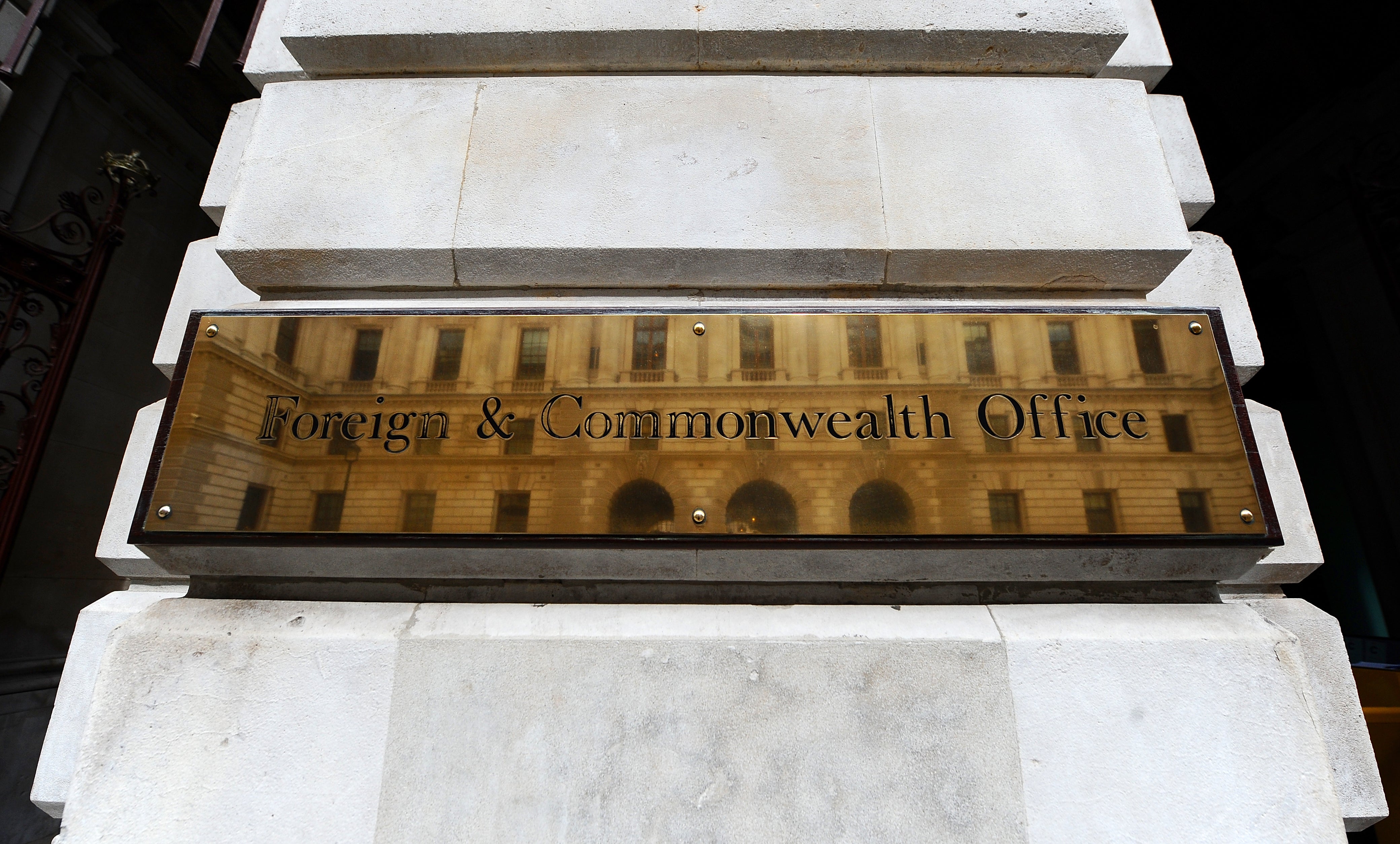UK begins withdrawing staff and families from embassy in Ukraine
Some officials and their dependants are being pulled out of Kyiv because of the risk of Russian military action.

Some British embassy staff and their dependants are being pulled out of Kyiv in response to the mounting Russian threat to Ukraine
The Foreign Office confirmed the move after the United States ordered the families of all American personnel at the US Embassy to leave the country in response the the risk of an invasion.
Russian forces have massed at the border with Ukraine and intense diplomatic activity has failed to ease tensions.
The Foreign Office said: “Some embassy staff and dependants are being withdrawn from Kyiv in response to the growing threat from Russia.
“The British Embassy remains open and will continue to carry out essential work.”
Meanwhile, Nato committed more ships and fighter jets to eastern Europe.
Denmark is sending a frigate to the Baltic Sea and is set to deploy F-16 fighter jets to Lithuania, Spain is sending ships and is considering sending fighter jets to Bulgaria, France has expressed its readiness to send troops to Romania, and the Netherlands is sending two F-35 fighter planes to Bulgaria from April.
The UK believes there is a significant risk that Russian president Vladimir Putin will launch a full-scale invasion of Ukraine.
Foreign Secretary Liz Truss has accused the president of plotting to install a pro-Moscow leader as head of the Ukrainian government.
The Foreign Office took the unusual step of naming former Ukrainian MP Yevhen Murayev as a potential Kremlin candidate to take over in Kyiv – a claim dismissed as provocative “nonsense” by Moscow.
Deputy Prime Minister Dominic Raab warned on Sunday there was a “very significant risk” of a Russian invasion of its neighbour.
“The world needs to keep its eye on this and be very clear with President Putin that it would not do this cost-free, that there would be a price,” he told the BBC.
“A price in terms of the strenuous defence that we would expect the Ukrainians to put up, but also the economic cost through sanctions, which are of course more effective if the international community speaks as one or at least with a broad consensus.”
There are concerns that the crisis could trigger a spike in European energy prices, with The Times reporting that officials fear Russia could restrict supplies of gas in response to sanctions.
Subscribe to Independent Premium to bookmark this article
Want to bookmark your favourite articles and stories to read or reference later? Start your Independent Premium subscription today.
